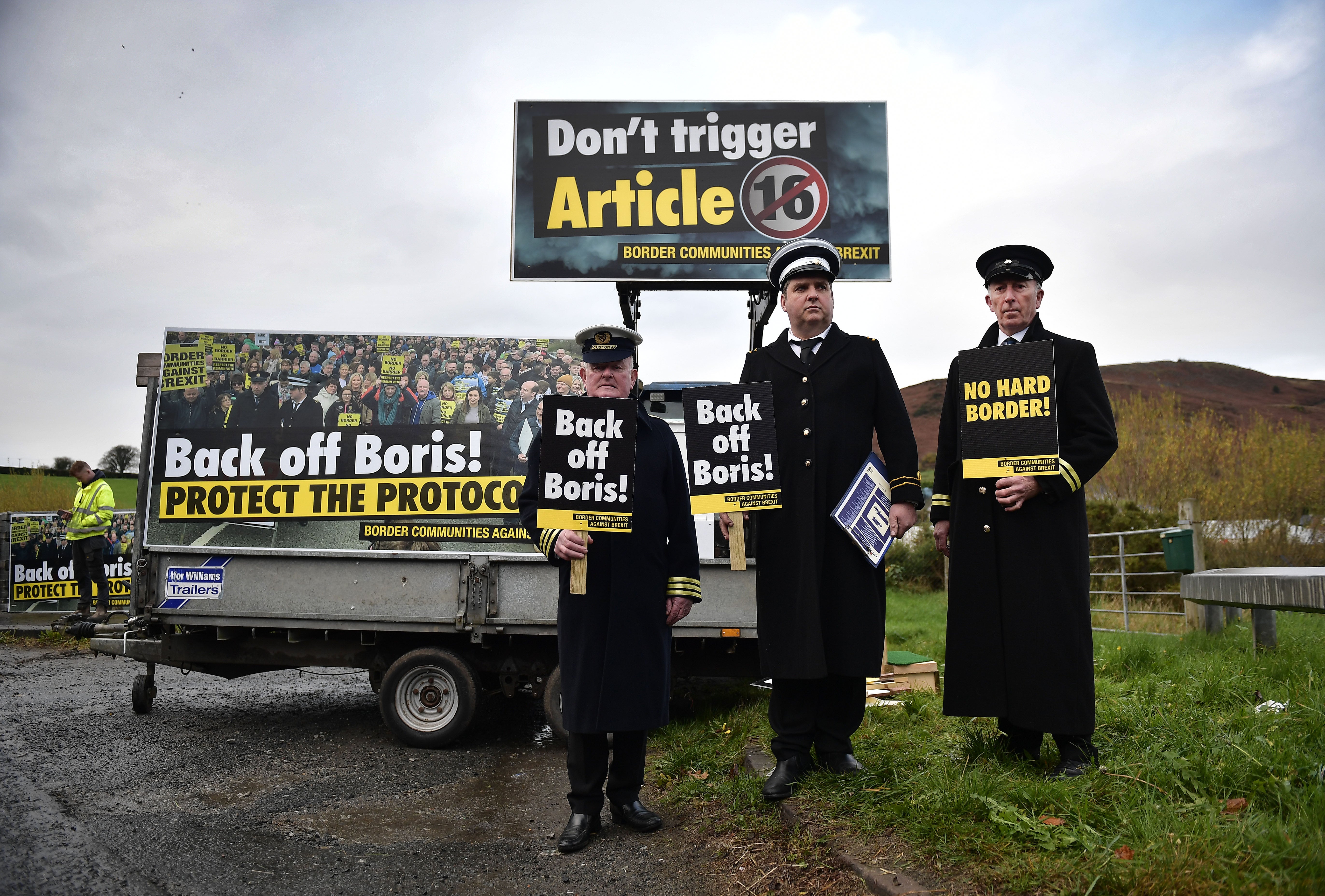What’s happening with Brexit?
Ahead of the anniversary of when Brexit got ‘done’, Sean O’Grady examines the latest phase of a never-ending negotiation


Christmas Eve marks the first anniversary of Brexit – the day in 2020 when Brexit finally got “done”. Or so everyone thought before the accords began to unravel, for some reason and another, shall we say. There was much unfinished business. The impression was that Johnson signed the withdrawal agreement in 2019 knowing it was a betrayal of Northern Ireland, hoping he could revisit it later on. Thus Michael Gove and Lord (David) Frost were dispatched to Brussels to conduct a renegotiation and grind the EU down until they offered some “concessions”. Meagre or not they would be an improvement on what he and Frost signed.
Now, it seems that the arguments may soon splutter to an exhausted standstill. The British appear to have caved in on the sensitive issue of the European Court’s jurisdiction over the operation of the single market in Northern Ireland – which is, after all, explicitly inside both the EU customs union as well as the UK internal market. In return, the EU has indicated it may go easy on the strict interpretation of the rules on goods moving between Great Britain and Northern Ireland/Ireland/the EU. Medicines, in particular, can flow freely. Quietly, the UK and Jersey have been more generous to French fisherfolk, another flashpoint. It may actually be that Brexit is, practically speaking, “done” at last, the “interim” status of the agreement allowing both sides to reserve their formal final positions indefinitely, and preserve their pride. Like the Korean war that ended in 1953, but which is technically still on, it is a ceasefire that seems set to turn into a permanent, if sometimes volatile, truce.
So this latest “interim” agreement, of many stopgap compromises over the past year, may prove more durable, given that both sides have talked themselves to a standstill, neither has much interest in a trade war at such a critical time in the pandemic, and they have better things to do. Johnson has simply run out of energy to fight on multiple fronts, and has chosen to discreetly give up on this one, leastways for now.
This untidy conclusion to hostilities is in stark contrast to the grand boasts of a year ago. The EU-UK Trade and Cooperation Agreement joined, and in effect formed a second chapter to, the earlier withdrawal agreement as the finally agreed historic Brexit package. Boris Johnson, the face of Vote Leave and the man who won the December 2019 general election on the endlessly repeated promise that he would “get Brexit done” had secured his place in history. On Christmas Eve 2020 Johnson somehow failed to mention Northern Ireland and declared that “I say again directly to our EU friends and partners, I think this deal means a new stability and a new certainty in what has sometimes been a fractious and difficult relationship.” It didn’t quite go as planned.
Now, with bigger challenges to occupy his time, Johnson may actually be about to deliver a done deal. His Eurosceptic critics in the Tory party, however, will not be appeased, and there will be trouble from Ulster Unionists.

Join our commenting forum
Join thought-provoking conversations, follow other Independent readers and see their replies
Comments